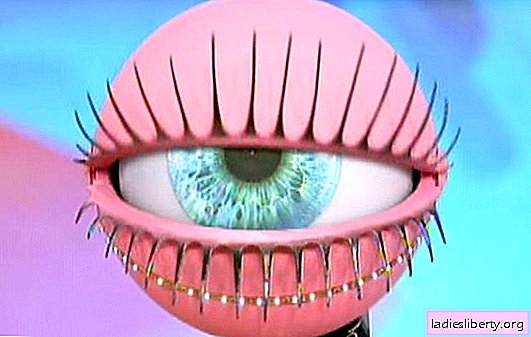
If your eyelid twitches, then you are likely to come across an eye tic, a fairly common occurrence familiar to almost every adult. Externally, these convulsive muscle contractions are barely noticeable, although twitching and pulsation can be intense and create significant discomfort.
Usually, the appearance of a nervous tic is associated with impaired functioning of the nervous system, but there are other not obvious reasons.
Stress
Being in a stressful state, the body begins to actively produce the hormone cortisol, whose task is to bring the muscles into a state of alert in case of danger. An eye tic in this situation is one of the manifestations of the mobilization of the whole organism.
Ocular muscle strain
Often the cause of twitching of the upper or lower eyelid is severe fatigue of the muscle tissue of the eyes. Hours of hard work at the computer, enthusiastic reading a book or watching television for a long time - all this can lead to strain of the eye muscles. It should be noted that the eyes may also get tired of wearing glasses and lenses.
Bad dream
The pulsation of the eyelids often worries when a person does not get enough sleep or suffers from insomnia.
If the reason is lack of sleep, then after a night of sound, prolonged sleep, the problem of eye teak will most likely disappear the next morning.
Alcohol and caffeine
The symptom discussed often worries people who drink excessively alcohol or drinks that are high in caffeine (coffee, energy). Reducing the daily dose of caffeine and refusing alcohol will help get rid of teak.
Vitamin deficiency in the body
An unbalanced diet and a low content of vitamin products in the diet often lead to malfunctioning of many body systems. Due to a lack of nutrients, the nervous system can also suffer.
In this case, an eye tic will not be the only consequence of vitamin deficiency, but only one of a number of concomitant symptoms.
Too high loads
Excessive physical or mental stress will inevitably lead to overwork and chronic fatigue, which will affect the functioning of the nervous system.
Dry eye syndrome
Dryness, pain, sensation of "sand", burning in the eyes are symptoms that are very characteristic of the so-called "dry eye" syndrome. As a rule, the condition occurs as a result of prolonged eye strain and requires timely treatment, since there is a likelihood of developing corneal diseases. For the most part, the problem concerns the elderly.
When should I sound the alarm?
If the eye tick worries for a short period of time and disappears on its own, then do not worry.
However, the phenomenon may turn out to be harmless and indicate a disease in the event that it does not pass more than a week and is accompanied by other alarming symptoms.
Situations when a visit to the ophthalmologist’s office and adequate treatment are required:
Allergic reaction
Eye allergies are usually accompanied by lacrimation, itching, and burning. Antihistamines prescribed by a specialist will help to eliminate the manifestations of such a reaction.
Infectious eye diseases
The presence of infection in the eye can be easily recognized by swelling of the eyelids, redness of the sclera, and increased photosensitivity. If you have similar symptoms, be sure to consult a doctor to determine the cause and begin treatment.
Systemic neurosis
The worst thing is if the tick is caused by a systemic neurosis. In this case, the help of a doctor is needed urgently.











